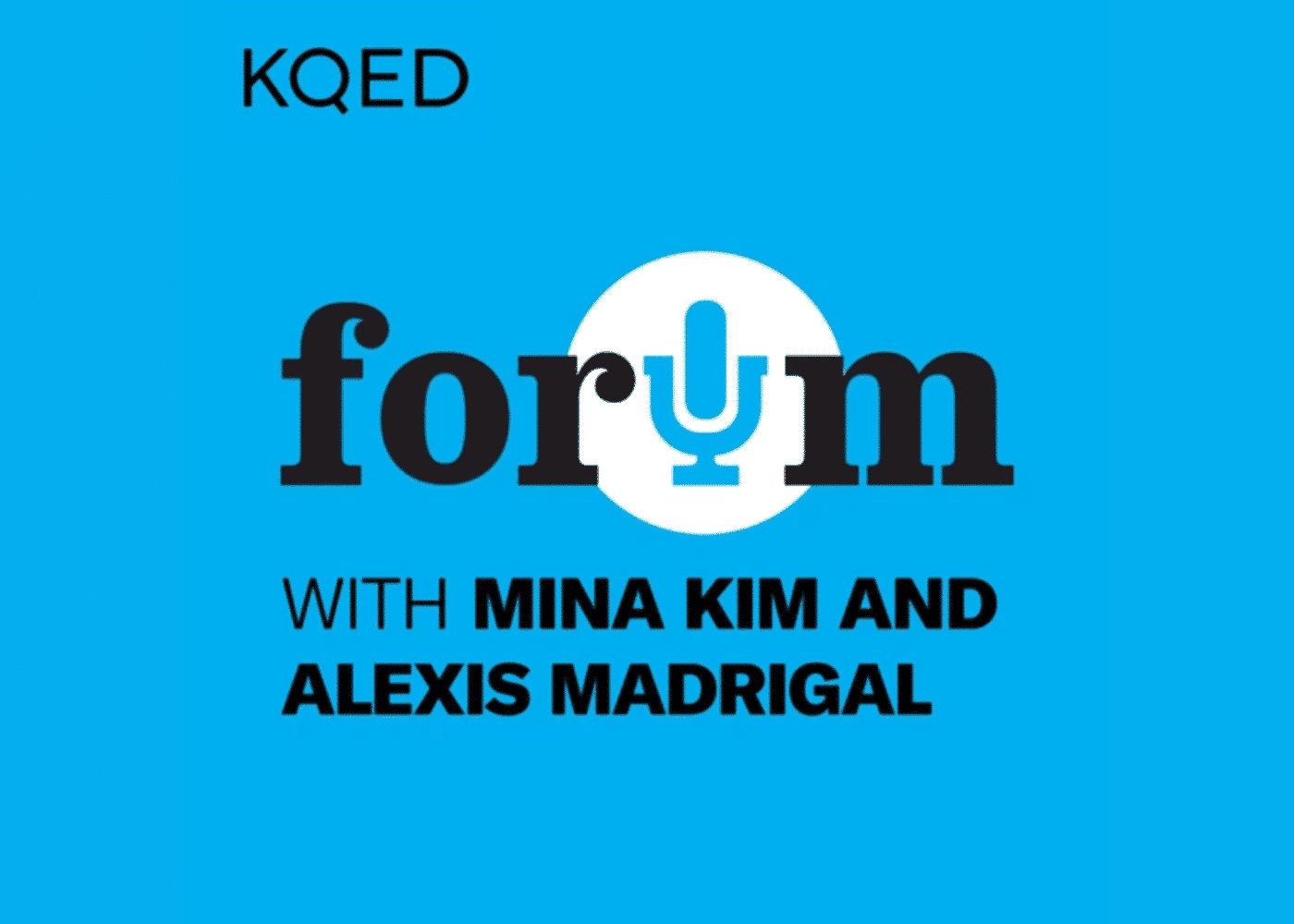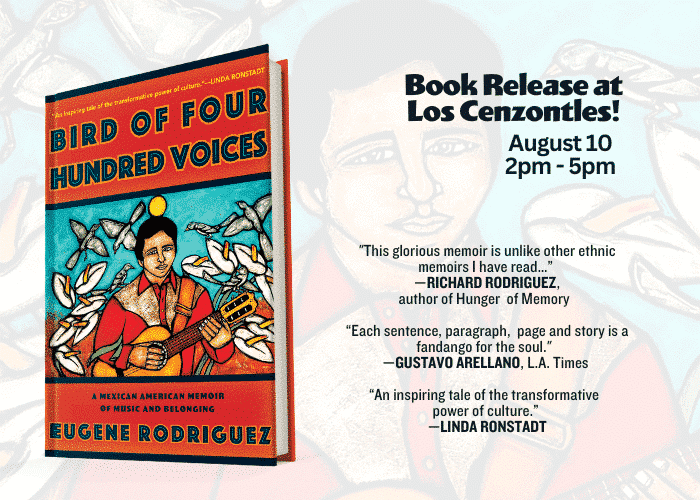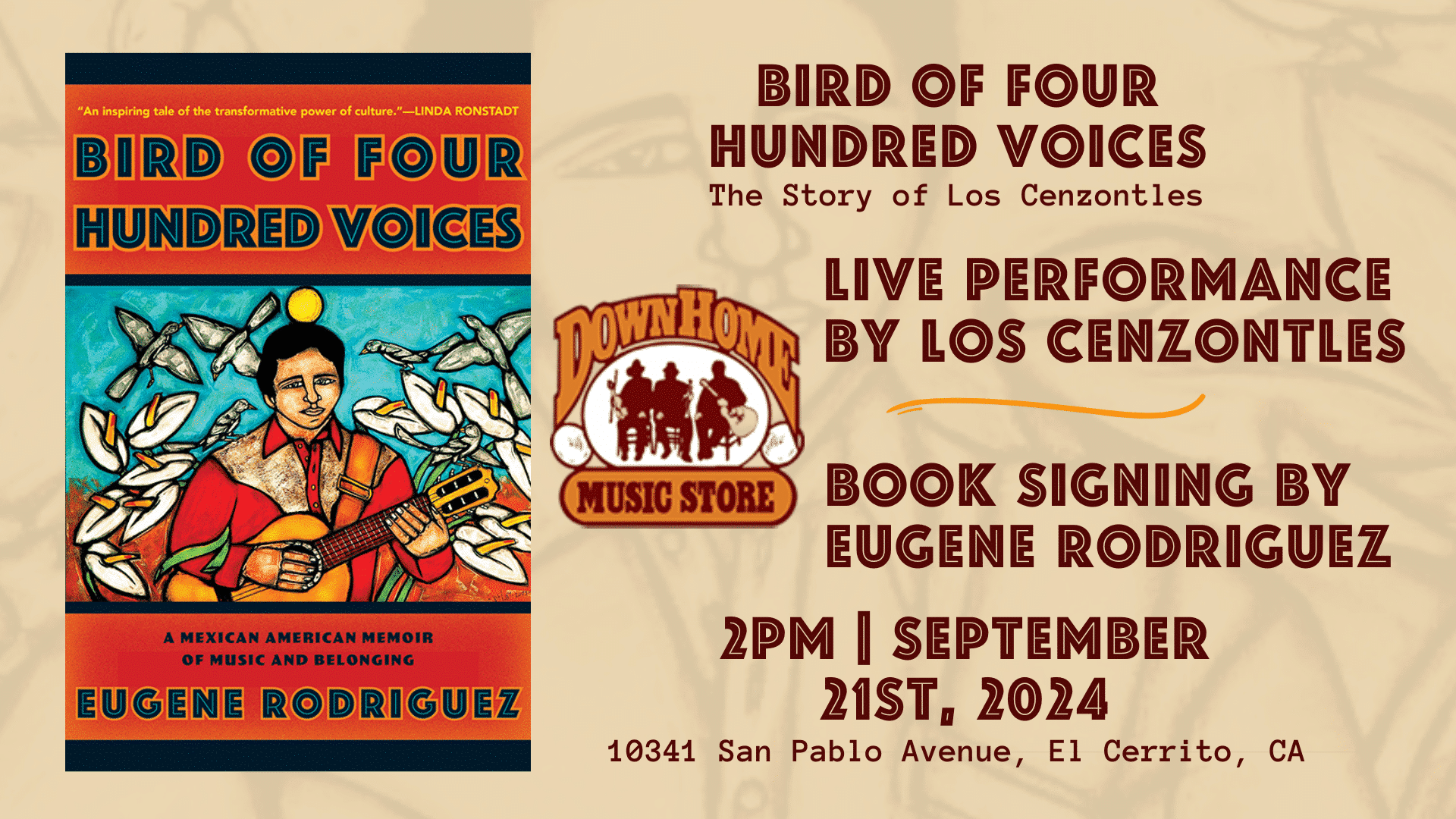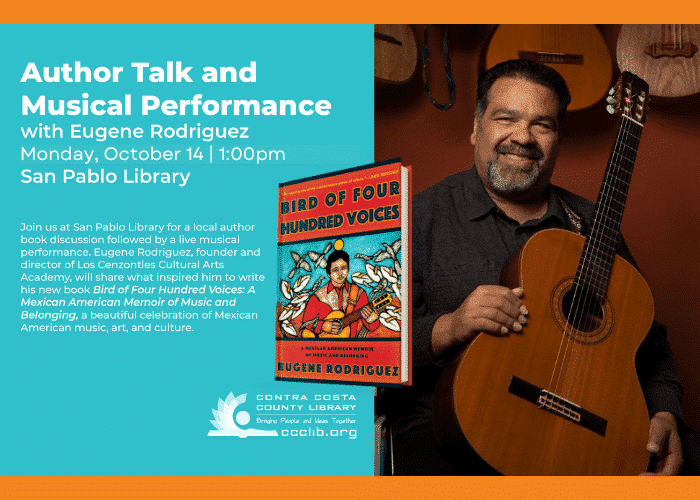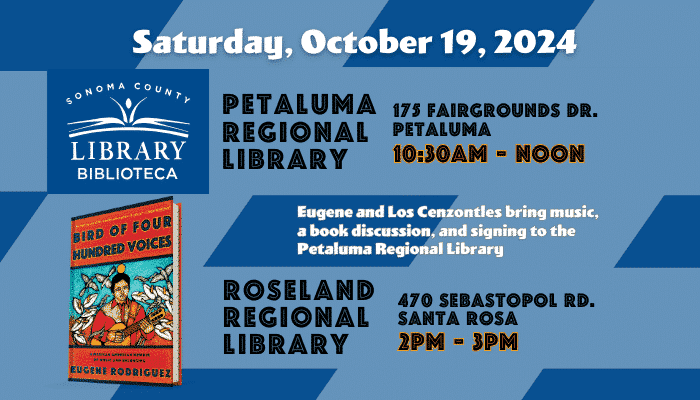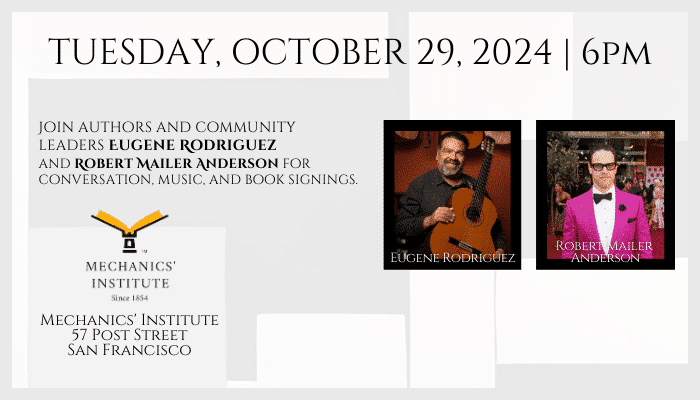Bird of Four Hundred Voices: A Mexican American Memoir of Music and Belonging
By Eugene Rodriguez
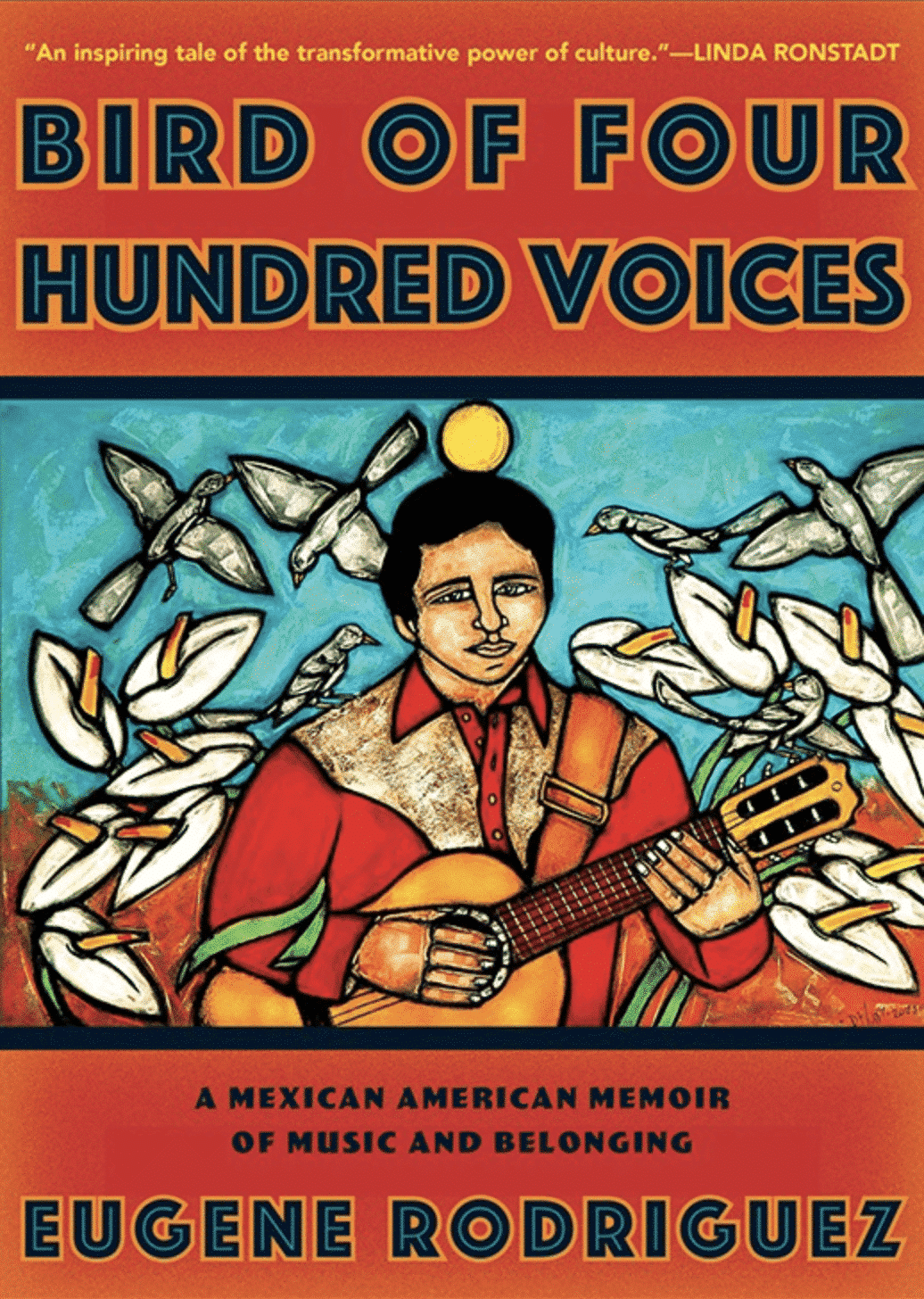
By Eugene Rodriguez
Bird of Four Hundred Voices, written by Eugene Rodriguez, chronicles the extraordinary journey of Los Cenzontles from a barrio youth group into an internationally acclaimed beacon of cultural preservation and education in San Pablo, California.
The book can be purchased here!
“In a society that tries, in countless ways, to convince us to devalue ourselves, the cultural arts can help our children build resourcefulness and resilience that can protect their sense of self,” says Rodriguez. As he candidly recounts, Rodriguez founded Los Cenzontles in 1989 seeking personal healing and cultural connection. Witnessing the group’s powerful impact on his students, he then recruited them to build a non-profit organization with a cultural arts academy, a touring and recording musical group, and multimedia production studio.
The book reveals the many challenges and guiding values of Los Cenzontles’ 35-year trajectory within which they have trained thousands of community youth, revived lost Mexican traditions, and produced dozens of CDs and films. They have performed, recorded and composed with celebrated musicians including Linda Ronstadt, Los Lobos, Jackson Browne, Taj Mahal, Ry Cooder, The Chieftains, Flaco Jimenez, and Preservation Hall. By both “honor[ing] and upend[ing] traditional Mexican music,” Los Cenzontles has created “something completely new, and distinctly American,” as the New York Times wrote.
Against the backdrop of historic immigration from Mexico and a resulting political backlash, Bird of Four Hundred Voices candidly reflects on issues of identity, belonging and cultural engagement, offering a profound exploration of Mexican American culture and its historic imprint on the fabric of American society. This timely memoir not only narrates the struggle and resilience of an artistic community but also challenges us to reevaluate how Latino populations are viewed and supported in our society. Amidst growing discussions about inclusivity and the true meaning of democracy, Rodriguez’s story is a clarion call for decentralized vision for American identity.
